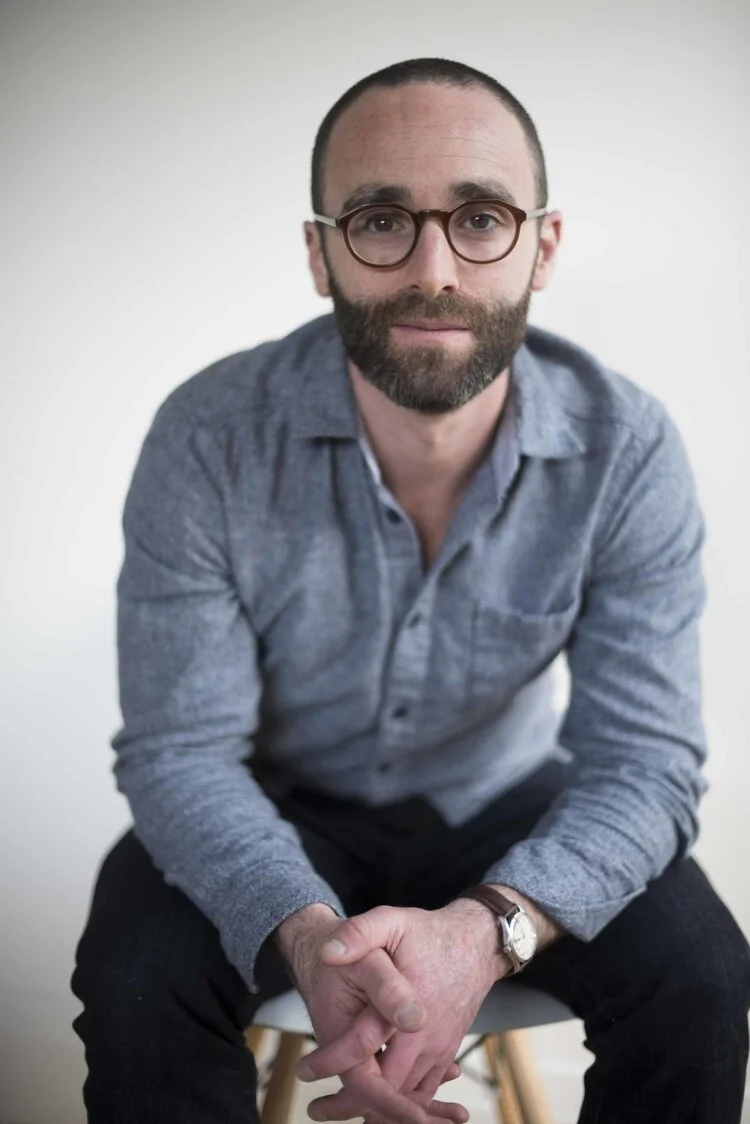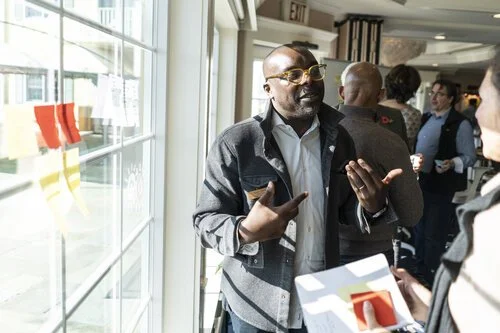How Unreasonable Group Is Re-Purposing Capitalism By Championing World Changing Entrepreneurs And Creating An ‘Ecosystem Of Good’
MINNEAPOLIS, MN - MAY 5: Tru Pettigrew, Chief Diversity & Inclusion Officer for the Minnesota Timberwolves and Lynx, photographed by David Sherman on May 5, 2021 at Target Center in Minneapolis, Minnesota. COPYRIGHT 2021 DAVID SHERMAN PHOTOGRAPHY (PHOTO BY DAVID A. SHERMAN)
I have long been fascinated by The Unreasonable Group, an investment house that is building a unique ‘ecosystem for good’ that is nurturing entrepreneurs tackling some of the world’s largest challenges.
Via the Unreasonable Fellowship, they actively support nearly 300 growth-stage companies who have raised more than $6.5B in financing, generated over $5.4B in revenue, and are measurably and positively impacting the lives of more than 720M individuals across 180+ countries.
To help scale their efforts they have partnered with institutions and multinationals, such as Barclays, Accenture, Pearson, Nike, J&J and the US State Department, who believe that solving the world’s toughest problems is not only a moral imperative, but also an unprecedented financial opportunity.
They also recently launched the Unreasonable Collective — an invitation only community for individual investors looking for opportunities at the nexus of advanced technologies, impact, and financial returns.
To find out more about this singular entity, I caught up with Unreasonable Founder Daniel Epstein, Christiana Musk, Chairman, Board of Directors, and Pratibha Vuppuluri, Head of Investment.
Afdhel Aziz: Daniel, let’s start with you. What was your inspiration behind setting up Unreasonable?
Daniel Epstein, CEO at Unreasonable Group
Daniel Epstein: In university I studied philosophy and learned that ultimately, it’s the discipline of questioning, deconstructing, and reconstructing your world. Philosophy ultimately led me to working on Unreasonable. Founding Unreasonable was based on a simple realization — capitalism, as we know it today, is just a tool. In the same way a hammer is a tool and it can be wielded to destroy a house or to build a home, capitalism — as the most powerful tool in modern times — when levered correctly can be used to profitably create a more just future.
Taking this belief to heart, when I was 18 I launched my first startup. In university I ended up founding three companies and all of them were utilizing for-profit business models to solve problems typically delegated to the non-profit sector. I wanted to lever business as a tool for transformation. Ultimately, the genesis of Unreasonable was because I felt like a misfit and wanted to seek refuge amongst fellow misfits — entrepreneurs foolhardy enough to believe they can solve pressing global problems but so hell bent and determined they won’t stop until they do. To be candid, when I founded Unreasonable I was still running two other companies and I had no interest in running Unreasonable in the long term.
Two years later I became addicted to leverage — not from a financial perspective but rather an impact perspective. Yes, I could start a number of companies in my entrepreneurial lifetime and if I was lucky, maybe one or two of those companies would positively impact 10 million lives. Or, I could focus my efforts on Unreasonable and as an organization, we could strive to become the most effective company and community of our time dedicated to supporting the growth of entrepreneurs already having a positive impact on the front-lines. Today, the companies we support across the Unreasonable Fellowship are measurably improving the lives of more than 720 million individuals across nearly every country and territory in the world. They have collectively raised over $6 billion in funding and many — I believe — are positioned to become the future titans of industry.
Aziz: That’s an incredible journey, thank you for sharing. So how would you describe Unreasonable and what it does?
Epstein: Unreasonable exists to re-purpose capitalism. We are a company dedicated to supporting an international life-long Fellowship for growth-stage entrepreneurs. We channel exclusive deal-flow to more than a thousand investment funds and we partner with institutions to discover profit in solving pressing global problems.
In one sentence, what we do is building community between entrepreneurs, institutions, and investors to profitably solve pressing global problems.
Aziz: You really are building an ‘ecosystem for good. And what are your future aspirations as to what it can be?
Epstein: We envision a world in which the most valuable, influential and lasting companies are those solving humanity’s most pressing challenges. To play our part in ensuring this is the direction capitalism evolves towards, our job at Unreasonable is to demonstrate to the world that you can not only do well by doing good — but that you will out-perform the market by orienting your company and your investments around solving the most meaningful problems of the 21st century.
If we are going to serve as a catalyst in shifting global markets, we need to think big. My aspiration is that Unreasonable, in a measurable and attributable way, moves a trillion dollars over the next 30 years into companies operating at the nexus of regenerative economics, inclusive business, and profit. I envision that the companies we support in the Unreasonable Fellowship will not only be the most valuable companies of our time, but they will make a meaningful difference in the lives of billions across the globe — ensuring that the future of healthcare, education, renewable energy, financial inclusion, protein synthesis, etc are made accessible to everyone, everywhere.
We are in the game of re-purposing capitalism and the only thing I know for certain is that we can’t do it alone. Yes we are an investment house and yes, we run a global Fellowship for growth-stage CEOs; but above all else, we are a community that is rooted in shared values. My aspirations for the future is that we don’t only move a trillion dollars of investment into companies creating a better tomorrow — but that we have also built the most connected, vulnerable, powerful, inclusive, and influential global community in a generation — a diverse community of individuals dedicated to creating tangible, lasting, and intercontinental change.
The community that rests at the heart of Unreasonable is our competitive edge — our partners like Barclays and Accenture, the hundreds of individual investors who are members in The Collective, our mentors, our team, and most importantly the Unreasonable Fellows — without this community Unreasonable wouldn’t be unreasonable. This community is at the heart and center of my ultimate aspirations for where we are heading next.
Aziz: Christiana, how about you, what inspired you about Unreasonable?
Christiana Musk, Chairman, Board of Directors at The Unreasonable Group | COPYRIGHT MARK LEIBOWITZ
Christiana Musk: Each one of our impact entrepreneurs is a seed of tremendous potential, and Unreasonable builds the ecosystem of fertile soil, energy, and nourishment to support that entrepreneur to reach their potential. By focusing on leaders that are working on breakthrough solutions to our greatest global problems we are betting on them to transform our world. It’s a powerful theory of change.
Global problems require innovation from all over the world. So far, we have in our network nearly 300 fellows from almost 50 countries generating over $5.5 billion in revenue, many of whom are women or BIPOC entrepreneurs. We work hard to make sure our mentors and investor communities are also diverse and global.
Take Daniel. An entrepreneur that started a company for the singular purpose of helping other entrepreneurs make the world better? He is the ultimate example of servant leadership who thrives by helping others reach their potential.
Aziz: Thank you for sharing that Christiana. Who are some of the other entrepreneurs that inspire you the most?
Musk: Uma Valeti, founder of Upside Foods & Annie Ryu, founder of Jack & Annie’s both gave up medical careers to transform our food system. I believe the meat crisis is the greatest wicked challenge of our times and both are creating new solutions to these problems. Annie has figured out how to take the world’s most abundant fruit- Jackfruit- and turn it into the most wholesome and delicious plant-based meat replacement out there while empowering small farmers to expand sustainable agroforestry in India. (Sustainable Agroforestry = one of the greatest solutions for climate change +feeding world.) Uma has figured out how to actually make meat. Period. Not an alternative to meat – but actual meat. When you grill up the chicken it caramelizes like chicken, smells and tastes like chicken because it is 100% chicken— without slaughter. Given that over 50 billion chickens are slaughtered a year and demand is projected to double- this is a game changing solution.
When you add that to our fellows who are using cutting edge Artificial Intelligence to tackle food waste, developing prefabricated modular bio-digesters to bring clean energy and sustainable agricultural practices to over 100 million farms across the world, distributing modular desalination machines to provide clean water and upgrading aquaculture to make it truly sustainable—we truly have the great leaders of the future of our food system in our Unreasonable community!
Aziz: Pratibha, let’s turn to you. Please tell us what the Unreasonable Collective is and what its investment thesis is all about?
Pratibha Vuppuluri Head of Investment at The Unreasonable Group
Pratibha Vuppuluri: Our invitation-only members’ club is a community of values-aligned investors who co-invest in best-in-class, growth-stage technology ventures in climate-tech (80%) and future of work (20%). We syndicate deals and co-invest alongside marquee VCs who set competitive terms, and offer our members a chance to back some of the leading technologies from our Fellowship which currently includes about 280 ventures that are uplifting the lives of more than 720 million people in over 180 countries. Each deal is highly-curated and vetted, going through a multi-layered diligence approach before it is presented to our members. We focus on Series A and Series B stage ventures with a proven track record and on a trajectory to offer above-market returns for our members.
Aziz: I love the deliberate focus on diversity not just on the founders, but also on the investors. Has this led to improved business impact?
Pratibha Vuppuluri: We’re working hard to transform the investment landscape to really ensure underrepresented entrepreneurs are funded, which means we need a more diverse group of investors funding them. We know less than 1.3% of the $69 trillion in global assets under the four major asset classes are managed by women and people of color. So we created a mandate to build an inclusive network, where at a minimum, 50% of our members are women, Black, Indigenous, and people of color, or LGBTQ+. We have found that a diverse investor base both increases the flow of capital to diverse founders, and meets the needs of ventures who are actively looking for a diverse investor base that can bring smart capital, fresh perspectives, and ground-up insights.
For more information on Unreasonable Group, please click here.








